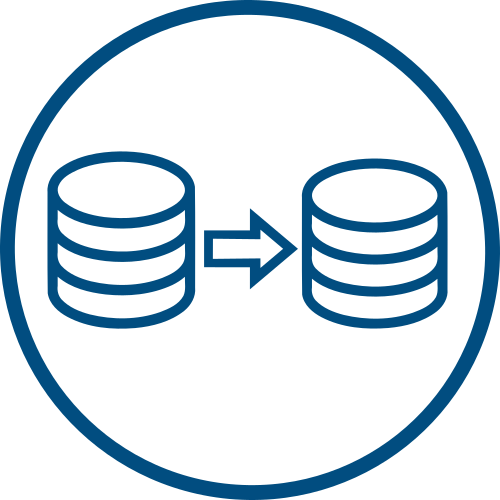Database Migration
Command Prompt is the oldest provider of PostgreSQL services in North America. We have been consulting and supporting PostgreSQL since 1997. We specialize in all things Postgres including migrations from Oracle or MySQL to PostgreSQL. We are also an Amazon Consulting Partner. We can assist you in delivering your new migration with on-premise and/or cloud infrastructure.

Let Command Prompt Minimize Pain Points and Blockers of your Migration!
Unlike many PostgreSQL companies, Command Prompt employs not only professional project managers to keep your migration on track but also technical experts to make your migration to the World’s Most Advanced Open Source database painless. reduce license, support and personnel costs as well as increase the size of the open ecosystem available to your company by choosing Postgres, the best option available.
Benefits of Migrating to PostgreSQL
- Zero license fees
- Reasonable support costs
- Lower personnel costs
- Proven adoption and growth of industry
- Proven reliability and data integrity with true ACID compliance
- Pure, Free, Open and BSD licensed
- Active ecosystem and community
- Zero vendor lock-in
- Cloud friendly
- Scalable and High Performance
- The most standards compliant database
- Extensible
Platforms
Command Prompt supports Linux on-premise or via the cloud via providers Amazon Web Services and Google Cloud. We are also an Amazon Web Services Consulting Partner.
Tools & Methodology
A migration from one technology to another can often feel daunting, even when the benefits of the new technology vastly outweigh the use of legacy software. Working closely with Command Prompt on your migration puts your organization on a path to a successful migration through the use of professional project managers, industry standard tools and best in practices methodologies.
As part of the Migration Assessment, Command Prompt will:
- Review business functionality, availability, and security requirements
- Identify available extensions to meet functionality requirements
- Analyze number and complexity of tables, stored procedures, triggers
- Analyze application code and database objects for syntax and functionality differences between source database and Postgres
- Identify testing strategies to validate data, code, and application correctness
- Evaluate deployment options to meet business needs
- Evaluate data conversion and synchronization process – considering size and complexity of data, available resources, parallel operation, and downtime tradeoffs
- Identify skills and training needed for maintenance, monitoring, and operations after go-live
What do you get?
At the end of the engagement*, you will receive a detailed report with findings, recommended approach, and estimated effort and cost to perform the migration. We will go through the details and answer any questions to ensure you have all the information you require to decide on the next step.
*Length of engagement based on number of systems to be analyzed